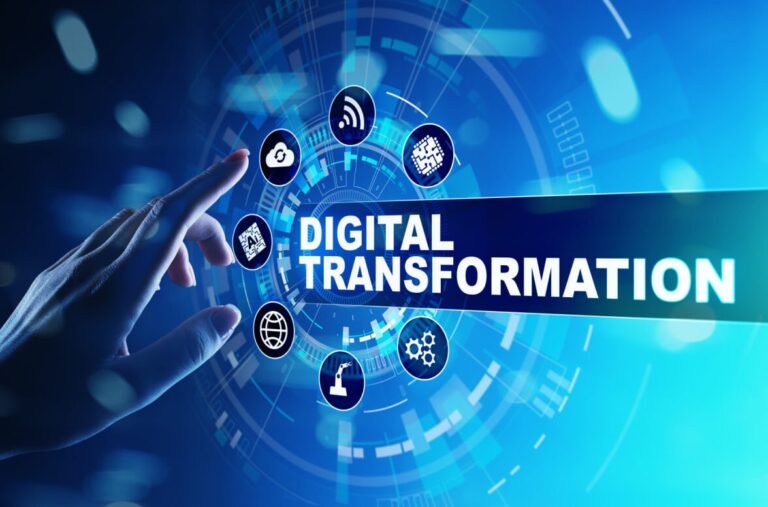As we step into 2023, machine learning remains at the forefront of innovation, revolutionizing multiple industries and elevating user experiences. Several notable applications of machine learning are emerging, poised to redefine our engagement with technology and our surrounding environment.
In this article, we’ll explore six of these compelling use cases, shedding light on their potential impact and the underlying technologies that make them possible.
1. Social Media Personalization

Social media platforms have become an integral part of our daily lives, and machine learning plays a pivotal role in enhancing user experiences on these platforms.
Tailored Content Delivery
Social media platforms, like Facebook, utilize machine learning algorithms to monitor and record user activities, including chats, likes, comments, and the duration spent on specific posts. By analyzing this data, machine learning models can predict user preferences, ensuring that the content delivered to users aligns with their interests.
This not only enhances user engagement but also ensures that users are exposed to content that resonates with their preferences.
Friend and Page Suggestions
Based on user interactions and behaviors, machine learning models can suggest new friends or pages that users might find interesting. These suggestions are not random; they are the result of intricate algorithms analyzing vast amounts of data to determine potential connections or interests that a user might have missed.
2. E-commerce Recommendations
The e-commerce industry has witnessed a surge in growth, and machine learning is at the heart of providing personalized shopping experiences.
Product Suggestions
One of the most prevalent applications of machine learning in e-commerce is product recommendation. By analyzing a user’s purchase history, search patterns, and cart activities, machine learning models can suggest products that the user is likely to be interested in.
This not only increases sales but also enhances the user’s shopping experience by reducing the time spent searching for products.
Predictive Inventory Management
Beyond product recommendations, machine learning can also assist e-commerce platforms in managing their inventory. By analyzing sales trends, seasonal demands, and other relevant factors, algorithms can predict which products are likely to be in demand, helping businesses manage their stock more efficiently.
3. Image Recognition and Analysis

Image recognition has emerged as a powerful application of machine learning, with potential use cases ranging from security to entertainment.
Face Detection and Recognition
Machine learning models can be trained to detect and recognize faces in images. This technology is widely used in security systems, smartphones for facial unlock features, and social media platforms for tagging friends.
The algorithms analyze unique facial features to identify individuals accurately.
Pattern Recognition
Beyond faces, machine learning can also detect patterns, objects, and features in images. This capability is crucial in various sectors, including healthcare for medical imaging, automotive for self-driving cars, and agriculture for crop analysis.
4. Sentiment Analysis in Real-time
Understanding the emotions and opinions of consumers is crucial for businesses. Machine learning offers a solution through sentiment analysis, enabling real-time insights into public sentiment.
Review Analysis
Sentiment analysis algorithms can instantly analyze product or service reviews to determine the overall sentiment of the feedback. For instance, if a customer writes a review about a product, the sentiment analyzer can quickly discern whether the feedback is positive, negative, or neutral.
This allows businesses to address concerns promptly and capitalize on positive feedback.
Email and Document Sentiment Detection
Beyond reviews, sentiment analysis can be applied to emails, support tickets, and other textual documents. By analyzing the tone and content of these texts, businesses can gauge the mood of their clients or employees, allowing for more tailored responses and strategies.
5. Enhancing Workplace Security
As organizations grow, ensuring security and appropriate access becomes paramount. Machine learning offers solutions to streamline and enhance these processes.
Automating Employee Access Control
Machine learning algorithms can determine the level of access required by employees based on their roles and responsibilities. For instance, an HR executive might not need access to financial data, while a finance manager would.
By analyzing job profiles and access patterns, machine learning can automate and refine access controls, ensuring data integrity and security.
Anomaly Detection for Security Breaches
Machine learning can also monitor network and system activities to detect anomalies that might indicate security breaches. By learning the regular patterns of system usage, any deviation from the norm can trigger alerts, allowing IT teams to address potential threats promptly.
6. Marine Wildlife Conservation

The preservation of marine wildlife is a global concern. With the aid of machine learning, researchers and conservationists can gain deeper insights into marine ecosystems.
Behavior Modeling for Endangered Species
Machine learning algorithms can analyze vast amounts of data to develop behavior models for endangered marine species. By understanding their migration patterns, feeding habits, and other behaviors, conservationists can devise strategies to protect these species more effectively.
Population Monitoring and Regulation
Machine learning can assist in monitoring the populations of various marine species. By analyzing data from satellite images, sonar readings, and other sources, algorithms can estimate population sizes and detect any significant changes.
This information is crucial for implementing conservation measures and ensuring the survival of endangered species.
FAQ
What is the difference between machine learning and artificial intelligence?
While machine learning is a subset of artificial intelligence, AI encompasses a broader range of technologies that allow machines to perform tasks that typically require human intelligence. Machine learning, on the other hand, focuses on algorithms that enable machines to learn from data and make decisions or predictions based on that data.
How do businesses benefit from machine learning?
Businesses can leverage machine learning for predictive analytics, customer segmentation, fraud detection, inventory management, and more. It helps in automating tasks, providing personalized customer experiences, and making data-driven decisions.
Is machine learning the same as deep learning?
No, deep learning is a subset of machine learning. While both involve algorithms that learn from data, deep learning specifically uses neural networks with many layers (hence “deep”) to analyze various factors of data.
How is machine learning used in healthcare?
In healthcare, machine learning can assist in diagnosing diseases, predicting patient outcomes, personalizing patient care, and optimizing hospital operations, among other applications.
Are there any concerns related to the ethics of machine learning?
Yes, concerns include data privacy, algorithmic bias, transparency of decision-making processes, and the potential misuse of technology. It’s essential for practitioners to address these ethical considerations when implementing machine learning solutions.
Final Words
Machine learning’s vast applications and its potential to revolutionize industries make it a focal point of technological advancement in 2023. As we’ve explored, its use cases range from enhancing personal experiences on digital platforms to global concerns like marine conservation.
As we continue to harness the power of machine learning, it’s crucial to approach its applications ethically, ensuring that the technology benefits humanity as a whole.
Related Posts:
- 5 Exciting 5G Use Cases and Their Future Network Impact
- 20 Essential Skills You Need to Become a Machine…
- Top PPC Trends to Watch in 2025: Staying Ahead of…
- Why Learning Outside of School Is Just as Important
- 5 Banking Analytics Trends Driving the Financial…
- How To Change Shipping Address On Amazon in 2023 -…








